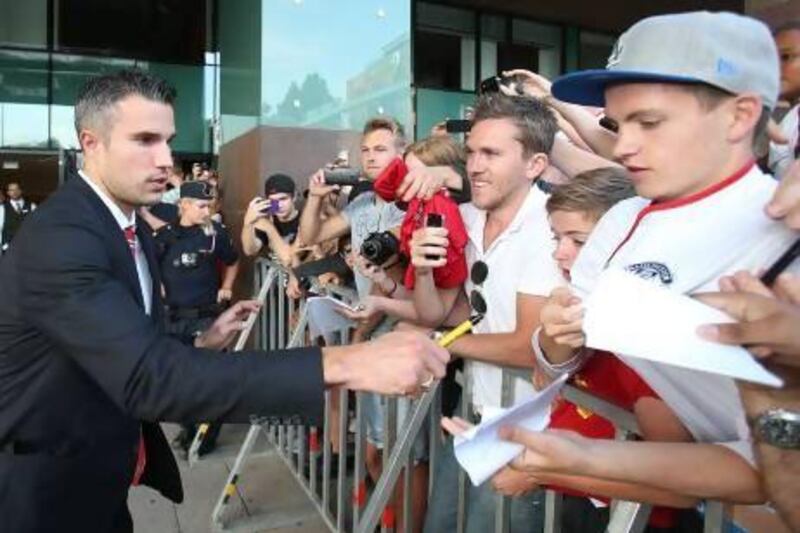When Ole Gunnar Solskjaer signed for Manchester United, in 1996, he described the club as "the biggest club in Norway". He would know how United compared with Liverpool, the next most popular team, for Solksjaer was a paid-up member of the Liverpool supporters' club.
United boast 42,000 members in Norway, just under one per cent of the entire population.
If those statistics were replicated in Britain, United would have four million members, not fewer than 200,000. And that is paid-up members, not "likes" on Facebook, but fans who are part of an organisation that organises trips to Old Trafford every week and has done for 25 years.
Liverpool have more than 30,000 members and the bitter enmity that burns between the two English north-west giants whenever they meet is also played out in the bars of Scandinavia.
Arsenal and Chelsea are a distant third and fourth, with around 5,000 members each, while almost every British club has a Scandinavian fan club, down to Prestatyn Town, average crowd 220, in the league of Wales.
British football has long been popular in Scandinavia. Fans in Norway talk of hearing games on the radio in the 1970s and 1980s before televised football became popular.
"I could just about get a reception during the day, but never at night," said Lars Morten Olsen, a Manchester United fan near Oslo. He has supported the team since the 1960s when he was entranced by a news item about the United legend George Best.
Norway has long been culturally close to England, but English football is also popular in other Scandinavian countries.
All 48,000 tickets for a friendly game between United and Barcelona at Gothenburg last August sold out in 30 minutes.
United attracted a crowd of more than 30,000 for a friendly game in Stockholm on Tuesday night, paying an average of 500 Swedish kroner for tickets (Dh280).
It helps that Scandinavia is wealthy enough to support such events and that it has barely been affected by the economic crisis, but not all fans are enamoured by what they see as cultural imperialism.
A group of AIK ultras gathered outside the stadium before Tuesday's game. They had no intention of going inside the stadium to see their team play United. "Tickets costs five times the price of a normal league game," said 'Josh', an ultra leader. "It's a needless friendly scheduled between two big league games for us."
AIK, third place in the league, play at second-place Malmo on Sunday.
The fans had another issue with the friendly being classed as a United home match - that meant United adverts and sponsors in their home stadium. It is a small knock against the ever-increasing popularity of the English Premier League, even in remote Nordic locations such as the Faroe Islands.
"The real reason British football became popular was the war," said Heri Simonsen, a Faroese stadium announcer. "On 9th April 1940, our motherland, Denmark, was occupied by the Nazis, but we were lucky because three days later the British rescued us from a hostile occupation.
"Twelve thousand soldiers came here. As well as building the airport, the soldiers played a lot of football.
"Many Faroese people started listening to the BBC during the war and never stopped. They became interested in British football.
"The [1958] Manchester United disaster, the great Liverpool teams of the 1970s and 1980s added to the interest."
That interest continues to grow.
Follow us
[ @SprtNationalUAE ]






